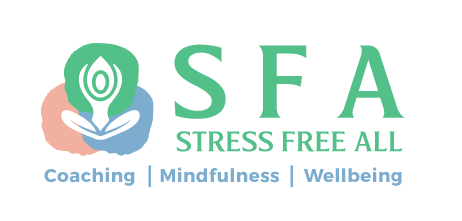

Mindfulness
What is Mindfulness?
Mindfulness is the basic human ability to be fully present in the moment with awareness without judgement.
While Mindfulness is something we all naturally possess, it is more readily available to us when we practice it on a daily basis.
Whenever we bring awareness to what we are directly experiencing via our senses, or to our state of mind via our thoughts and emotions, we are being Mindful.
There is growing research that shows that when we train our brain to be mindful, we are actually remodelling the physical structure of our brain.
Jon Kabat-Zinn, the creator of the research-backed stress-reduction program (MBSR), explains how mindfulness lights up parts of our brains that are not normally activated when we are mindlessly running on autopilot.
Who should practice Mindfulness?
Anyone can do Mindfulness practice. There are no barriers. It doesn’t matter how old you are, what your physical ability is, if you are religious or not.
It has helped people over the years in managing adversities, overcoming life blocks and building mental strength & calmness.
Practicing Mindfulness also helps in-
• Dealing with Migraines & Headaches
• Coping with Sleep & Skin Disorders
• Coping with Cancer related mind issues
• Healing from Stress, Anxiety & Depression
and many more issues related to Mind & Body.
At Stress Free All, our signature Programme-
P.R.E.- Pause Relax Enjoy
Is based on Mindfulness based Stress Reduction (8 weeks) and can be appropriate for Executives, Women, Children and Individuals in various ages of their life.
We also do various scientifically proven, Mindfulness based Cognitive therapy sessions for Pain Management for Cancer patients and other chronic illnesses.
Mindfulness for Children and Schools

What Is Mindfulness, and Why Do Kids Need It?
How does it help?
Adversity comes at us from the moment we are born. Infants get hungry and tired. Toddlers grapple with language and self-control. And as children develop through adolescence to become teenagers, life grows ever more complicated.
Developing relationships, navigating school and exercising independence — the very stuff of growing up — naturally creates stressful situations for every child.
At each developmental stage, mindfulness can be a useful tool for building “Life Skills” such as Self regulation, being resilient, inculcating kind & empathetic attitude which promotes contentment & happiness quotient of life. Mindfulness is a simple technique that emphasizes paying attention to the present moment in an accepting, nonjudgmental manner. It has emerged as a popular mainstream practice in recent decades. It is being taught to executives at workplace, athletes in the locker room, and increasingly, to children both at home and in school.
Early Habits
Children are uniquely suited to benefit from mindfulness practice. Habits formed earlier in life will inform behaviors in adulthood, and with mindfulness, we have the opportunity to give our children the habit of being peaceful, kind, resilient and accepting.
“For children, Mindfulness can offer relief from whatever difficulties they might be encountering in life,” Annaka Harris, Author
Part of the reason why Mindfulness is so effective for children can be explained by the way the brain develops. While our brains are constantly developing throughout our lives, connections in the prefrontal circuits are created at their fastest rate during childhood. Mindfulness promotes skills that are controlled by the prefrontal cortex, like focus and cognitive control, can therefore have a particular impact on the development of skills including self-regulation, judgment and patience during childhood.
Our 8 week programme P.R.E.-Pause, Reflect Enjoy, for schools and children can help them build life skills for now and the times to come.
For any further information on the programme or individual sessions please call
Mindfulness for Corporates
- Making the experience a challenge rather than a chore and thus turning the observing of one’s life mindfully into an adventure in living rather than one more thing one “has” to do for oneself to be healthy.
- An emphasis on the importance of individual effort and motivation and regular disciplined practice of the meditation in its various forms, whether one “feels” like practicing on a particular day or not.
- The immediate lifestyle change that is required to undertake formal mindfulness practice, since it requires a time commitment (45 minutes a day, six days a week minimally).
- The importance of making each moment count by consciously bringing it into awareness during practice, thus stepping out of clock time into the present moment.
- A therapeutic orientation, which makes people to help in cultivating ongoing motivation, support, and feelings of acceptance and belonging.
Mindfulness for Individual Stress Reduction
Mindfulness for Cancer Patients
“Mindfulness is not a cure for cancer but certainly can contribute to the overall well-being of the body”.
